Machine Learning in Healthcare:
AI and Machine Learning in Healthcare: Transforming Post-Surgery Recovery
AI is revolutionizing post-surgery recovery by offering personalized insights, real-time monitoring, and tailored rehabilitation plans. To unlock the full potential of this innovative technology, it is crucial to use AI responsibly and in collaboration with healthcare professionals. AI should serve as a complementary tool, enhancing recovery, not replacing the expertise of medical practitioners.
Maximize Recovery with AI and Human Expertise
By combining the power of machine learning in healthcare with the knowledge and wisdom of your medical team, you can achieve a smoother, safer, and more effective recovery. Additionally, maintaining a balanced diet, staying hydrated, and using AI tools thoughtfully can significantly enhance your healing process, ensuring that you return to your everyday life with minimal setbacks.
Do’s and Don’ts of Using AI After Surgery
Do: Consult with Your Healthcare Provider
While AI has proven benefits in healthcare, it’s crucial to remember that it is a tool, not a replacement for professional medical advice. Always consult with your surgeon, physician, or physical therapist before relying on any AI-driven recovery system. Whether it’s a wearable recovery device, an AI-enhanced rehabilitation app, or a chatbot providing post-operative care instructions, having professional oversight ensures that AI complements your recovery and doesn’t interfere with prescribed treatment plans.
Don’t: Rely on AI for Decisions You’re Uncertain About
AI can be a valuable tool for monitoring progress, but it cannot replace human judgment. For example, if AI suggests a particular exercise or diet regimen, but you feel unsure about your ability to perform it or its impact on your recovery, consult your medical team first. AI recommendations may be based on general algorithms that don’t always account for your unique medical history, specific surgical procedure, or complications you may have faced.
Do: Use AI for Monitoring Recovery Metrics
Machine learning in healthcare systems that track vital signs, pain levels, mobility, or medication adherence can provide invaluable data that helps doctors understand how your body is healing post-surgery. Many smart devices, wearables, and apps offer real-time feedback that can help identify potential issues early on, such as infection, inflammation, or abnormal recovery patterns. This data can lead to timely interventions and personalized adjustments to your treatment plan.
Don’t: Overtrust AI’s Interpretation of Data
AI technologies analyze data and provide recommendations based on patterns. However, AI systems might not fully grasp the subtleties of human recovery or the psychological factors affecting your well-being. AI should never be solely relied upon to interpret complex situations or suggest drastic changes to your recovery plan. A sudden change in pain levels, for example, might require immediate human evaluation rather than AI-driven decisions.
Do: Use AI for Enhanced Physical Therapy and Rehabilitation
Machine learning in healthcare can play a significant role in physical therapy, offering personalized exercise routines tailored to your recovery phase. AI-powered rehabilitation platforms can guide you through exercises that are safe and effective for your condition, adjusting difficulty levels as you progress. These systems can also use motion tracking to ensure proper form, reducing the risk of reinjury.
Don’t: Ignore Personalized Instructions
Even if an AI system provides rehabilitation exercises, it’s essential to follow any personalized instructions your medical team has given you. For example, after joint surgery, your doctor may recommend specific range-of-motion exercises that should not be rushed or overdone. Trusting only the AI without adapting to your unique limitations could put you at risk of overstretching or damaging the surgical site.
What to Eat During Post-Surgery Recovery: The Role of Nutrition and AI in Enhancing Healing
Proper nutrition is crucial after surgery to support tissue repair, immune function, and overall recovery. Machine learning in healthcare can be particularly useful in tailoring dietary recommendations based on your surgery type, body composition, and health goals. Below are some key nutrients you should focus on during your recovery, along with AI tools that may assist in meal planning and monitoring.
Do: Focus on Protein-Rich Foods
Protein is vital for tissue repair and immune function, making it one of the most critical nutrients for post-surgery recovery. Sources like chicken, turkey, fish, tofu, and legumes should be a priority in your diet. AI-based meal planning apps can recommend protein-rich meals and provide shopping lists based on your preferences and restrictions.
Don’t: Neglect Hydration
Dehydration can impede your recovery by slowing down circulation and hindering the body’s ability to remove waste products. AI apps that track water intake can help remind you to drink enough fluids throughout the day, ensuring that hydration levels are maintained at optimal levels.
Do: Eat Anti-Inflammatory Foods
To reduce inflammation and promote faster healing, incorporate foods rich in antioxidants, such as berries, leafy greens, and omega-3-rich foods like salmon and walnuts. AI-powered nutrition assistants can help ensure that your diet includes a variety of anti-inflammatory foods.
Don’t: Rely on AI to Replace Expert Nutritional Advice
While AI can suggest dietary patterns, it’s crucial to check with a registered dietitian or your healthcare provider, especially if you have specific dietary needs or restrictions due to the surgery. For example, a patient recovering from gastric surgery may need smaller, more frequent meals, which AI apps might not take into account.
The Dangers of Improper AI Use in Post-Surgery Recovery
While AI technologies can significantly enhance the recovery process, improper or excessive reliance on them can lead to risks. Here are some potential dangers of using AI incorrectly after surgery:
Over-reliance on AI for Medical Advice
AI-driven tools can provide data, but they cannot replace the critical thinking and diagnostic skills of healthcare professionals. Relying solely on AI for medical advice, especially when it comes to potential complications or recovery setbacks, could lead to serious health risks. For example, if an AI system detects unusual symptoms but doesn’t flag them as urgent, you might delay seeking medical attention.Misuse of AI-Recommended Physical Exercises
While AI-powered rehabilitation tools can be highly effective, improper use—such as overexertion or performing exercises too early—can result in complications, re-injury, or slower healing. Always ensure that AI-generated workout routines align with the advice provided by your surgeon or physical therapist.Privacy and Security Concerns
AI systems often collect sensitive health data, which could be exposed to security breaches or privacy violations if not adequately protected. If you’re using AI to track recovery metrics or health data, ensure that the platform complies with privacy laws such as HIPAA (in the United States) or GDPR (in the European Union). Failing to safeguard this data could lead to unintended consequences like identity theft or misuse of personal information.Data Overload
With AI continuously monitoring your recovery, you might receive an overwhelming amount of data that can be confusing or stressful. For example, frequent updates about minor fluctuations in your condition might lead to anxiety or unnecessary panic, leading you to make hasty decisions that could hinder your recovery.
AI is undeniably transforming the post-surgery recovery landscape, offering personalized insights, real-time monitoring, and targeted rehabilitation plans. However, to maximize the benefits and minimize the risks, it’s essential to use AI responsibly, consulting with medical professionals, following personalized recommendations, and ensuring that AI complements—not replaces—human expertise.
By combining the power of machine learning in healthcare with the wisdom of healthcare professionals, you can achieve a more effective, safer, and smoother recovery journey. Furthermore, a balanced diet, proper hydration, and cautious use of AI technology can play a pivotal role in your healing process, allowing you to get back to your normal life with minimal setbacks.

